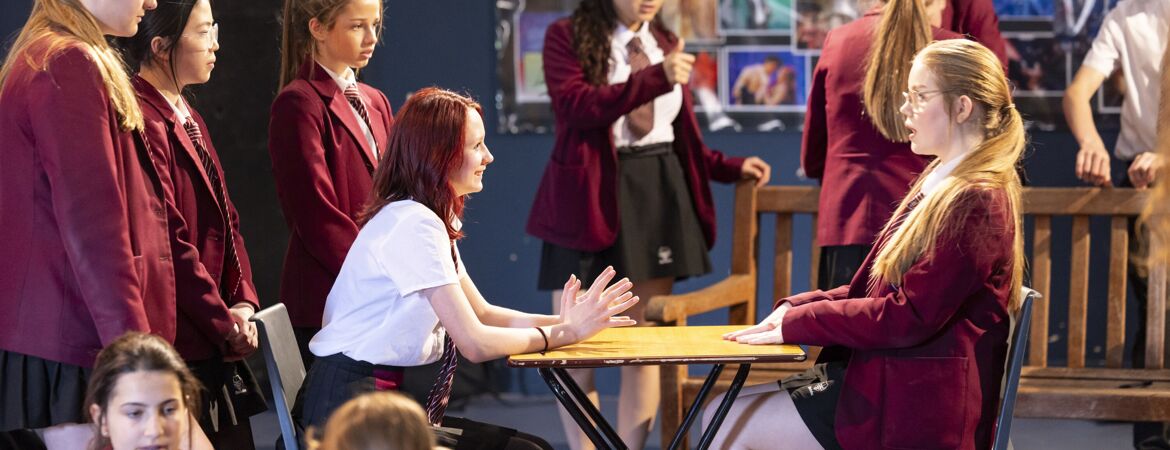Computer Science
Computer Science Curriculum Intent
The intention of the Computer Science curriculum is to ensure that students are equipped with a broad range of skills and knowledge that will enable them to actively participate in the digital world in which they live. The breadth of our Computer Science curriculum will encourage students to become critical thinkers when solving real life problems. It will also enable them to work independently to create systems, programs, and a range of content. We want students to have a range of experiences and opportunities to develop transferable skills which can be applied to further studies, their future career and the wider global community.
The overall aims of the Computer Science department are to enable pupils to become:
- Successful learners who enjoy learning, make progress and achieve
- Confident individuals who are able to live safe, healthy and fulfilling lives
- Responsible citizens who make a positive contribution to society
In order to enable pupils to achieve these goals, the department will aim to:
- Provide pupils with opportunities that develop within them a sense of enjoyment and achievement
- Develop pupils' recognition that computational thinking is an essential skill for life
- Develop pupils' ICT capability; technical skills and techniques, understanding to apply these skills purposefully, safely and responsibly in learning, everyday life and employment
- Provide pupils access to a broad, balanced, relevant, dynamic and motivating computing curriculum that ensures suitable progression paths from entry in KS3 to KS4 and beyond.
- Provide a curriculum that promotes pupils to develop as independent learners, critical thinkers, decision makers, problem solvers and reflective learners.
- Provide curriculum opportunities that promote pupils to work as individuals, as pairs, in small groups and teams as well as develop the skills to self manage their learning within any of these groupings
- Develop pupils understanding of and demonstration of safe and responsible use of ICT for both themselves and others.
Facilities
The curriculum area consists of four dedicated ICT suites which are well equipped and updated regularly with the latest software. All students have access to the Internet, a school email address and Showbie, a powerful learning platform, to share ideas, take tests and submit work from home.
Useful Links
- www.teach-ict.com - This site is dedicated to teaching ICT and Computing at all levels. Students will find revision notes , along with plenty of quizzes, competitions and polls to keep things interesting
- www.bbc.co.uk/click - Click is the BBC's flagship technology show across TV and radio. On TV it is broadcast throughout the week on BBC One, the BBC News Channel and BBC World News. Click is also available to watch and listen to online after broadcast in iPlayer.
- http://gadgetshow.channel5.com- The Gadget Show is a television series focusing on technology and is broadcast on Channel 5. The show previews and reviews the latest gadgets, broadcasts the latest technology news and is available via Channel 5’s on demand service.
KS3 ICT
Key Stage 3
All KS3 students complete work which is not just about the acquisition of ICT skills but is also concerned with developing an awareness in our students of the techniques, equipment and resources available that may help them decide the best solution to a problem.
Year 7
Year 7 ICT is taught for one period each fortnight by specialist staff. Topics include: Computer Hardware, Algorithm and Python Programming.
Year 8
Year 8 ICT is taught for one period each fortnight and the curriculum is designed to prepare students for study at KS4 in a fun and interactive way. Students will study Binary, Python Programming and Introduction to Boolean Logic.
What skills students will develop
Students in KS3 will have the opportunity to develop skills in the following areas:
- Basic ICT skills for Business
- Programming
- The use of devices such as iPads to encourage ICT and social skills
KS4 Computer Science GCSE
Board and Exam
OCR Computer Science
Link to Personal Learning Checklists
The Course
Students complete two units of work as below.
Computer systems
This unit will assess all topics and will be comprised of a 1.5 hour written exam. Topics include:
- Systems architecture
- Memory and Storage
- Computer networks, connections and protocols
- Network security
- Ethical, legal, cultural and environmental impacts of digital technology
Computational thinking, algorithms and programming
This second unit is assessed through a 1.5 hour written exam where the focus will be on understanding, interpreting, amending and creating algorithms. It will also provide students with an opportunity to demonstrate their understanding of developing program code.
How students are assessed
|
Exam (1.5 hrs) |
Computer Systems. |
50% of the qualification |
|
Exam (1.5 hrs) |
Computational thinking, algorithms and programming. |
50% of the qualification |
Homework
Homework is set once every week to consolidate the learning that occurs in the classroom and provides an opportunity for students to develop their independent skills.
Extra-curricular Activities
There are after school coursework sessions open to most students.
How parents can help
- Ensure children meet important coursework deadlines
- Ensure adequate revision is taking place in preparation for written examination
- Monitor the progress of their children
- Encourage their children to spend quality time completing homework assignments



